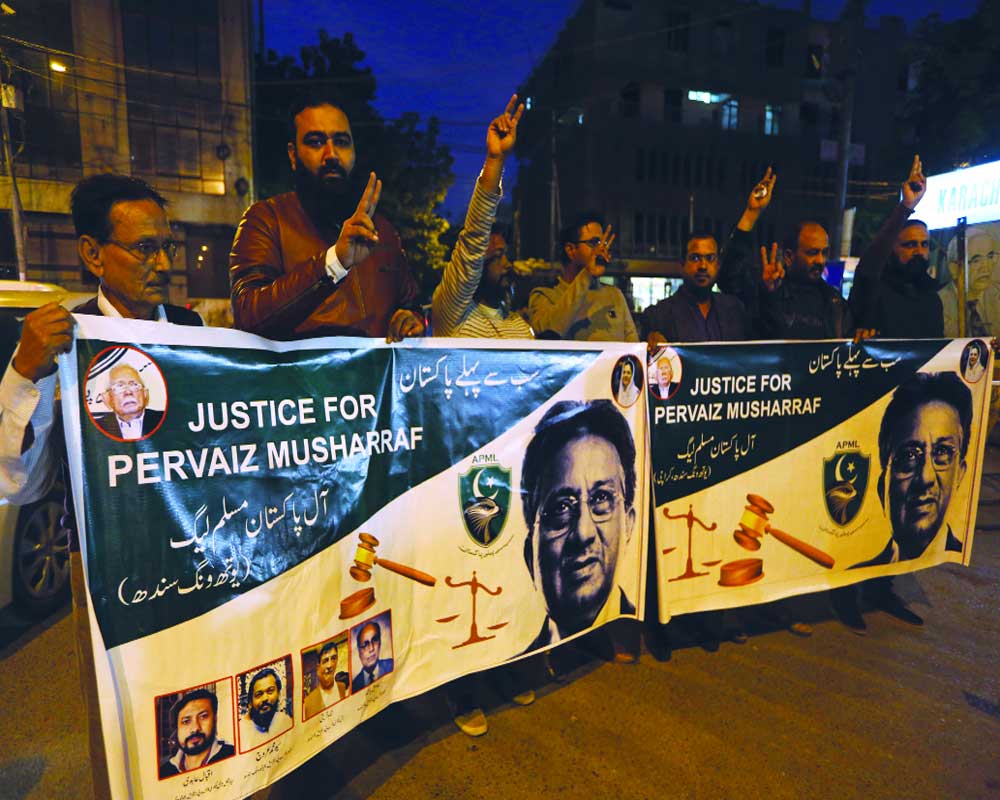The recent development in neighbouring Pakistan, where a special court handed the death sentence to former President and Army General Pervez Musharraf, is unprecedented in the sense that it is the first time a civilian court has acted against the powerful military. A military that has cost India severely beyond the “bleeding cuts” of militancy to the Kargil war. Musharraf is the first military dictator who has been convicted for “high treason.” Offences against him inter alia relate to gross violation of Article 6 of the Constitution of Pakistan. Events date back to 2007, when he had suspended the country’s Constitution and imposed Emergency. Ever since he was indicted for this crime in 2014, he has been in hiding mode, shuttling between his Dubai and London homes. Predictably enough, the Pakistan Army has come out strongly in his defence, arguing that he can “never be a traitor” and that “he served the country faithfully for over 40 years and fought wars for it.”
Whether Musharraf will be brought back or not is an intriguing question but what is sure is that this is not the end of the road for him. He has the support of the powerful Army, the Government and some other political parties, too, who have questioned the judiciary’s selective approach in singling him out while not bringing other dictators to justice. Besides, Musharraf can also opt to take the legal course and challenge the court’s ruling. This may as well lead to a lengthy judicial process where the courts, the Government and the Army can keep jostling to decide the fate of the ailing ex-General. With Pakistan already being a victim of a falling economy amid international pressures to come down hard on terrorism, the judiciary used it as a pretext to push back the Army. Perhaps, this assertion could also be because the Pakistani Army has in the last 10 years allowed civilian Governments to retain power while staying in the wings. It has not always been an easy relationship as legitimately elected governments were not only a threat to the military’s power and influence but also in conflict over key decisions, particularly with regard to India. The stage is now set for a showdown between the military and the judiciary because at no cost can the Army be seen as weak in a country where all other institutions are already defunct. That the wheels are already moving in that direction can be seen by the fact that the Government is studying the verdict. Though all legal recourse has not been exhausted as yet, the fact remains that for the present chief and the Army itself, death sentence to an ex-Army chief raises an existential question. And it should not come as a surprise if the Army hits back in the only way it knows.
(Courtesy: The Pioneer)








 OpinionExpress.In
OpinionExpress.In















Comments (0)